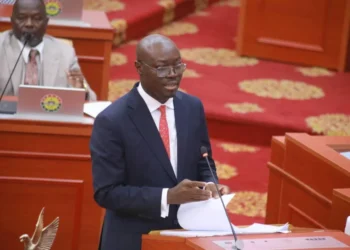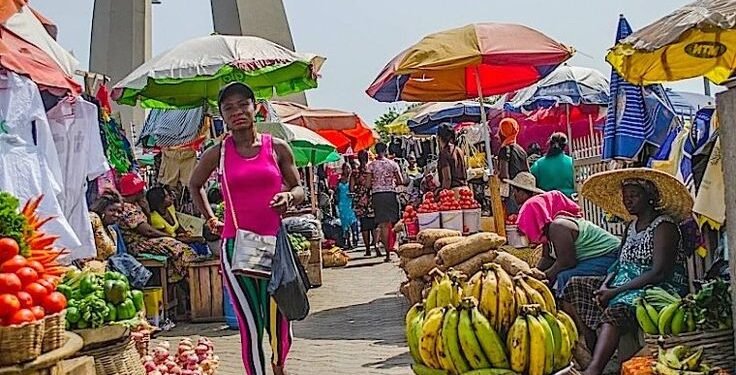An Economist, Dr. Theo Acheampong, has expressed his reservations about government’s latest deadline for the domestic debt exchange programme.
According to him, the deadline will not be met by individual bondholders because of entrenched positions on the matter. He indicated that taking into consideration the government’s top-down approach in handling the programme, reaching an amicable solution may not be realized.
“I don’t think that the 31st of January extension new date will be met because there are very entrenched positions here. Fundamentally, what this also means in my view is that the 55% debt to GDP number is not sustainable even by 2028. “
Theo Acheampong
Dr Acheampong indicated that currently, the process has been bungled because of the sort of “I-know-it-all attitude” exhibited by the government, where instead of engaging and consulting widely with the people that are affected, a lot of the things were thrown at them. He explained that due to the monies involved in the matter, the agitations expressed by the individual bondholders are legitimate.
“This is people’s monies, people’s livelihoods that we’re talking about. And so there was always going to be heavy resistance to it. But what people wanted to see was the government to actually engage in an open and frank manner rather than attempting to force the whole thing on them as a take-it-or-leave-it option. That is really where we have a lot of the challenges now.”
Dr Theo Acheampong
Extension of debt exchange deadline for individual bondholders
The economist stated that more work needs to be done for the government’s debt exchange programme to be considered attainable and sustainable. He highlighted that government must go back and rework the numbers, since the issue is about having to reduce its debt threshold by half within the space of about 4 years and that is going to impose heavy austerity on the people of Ghana.
“So, perhaps it’s really a question of going back to the drawing board and trying to see if we can instead have a gradual reduction of these debt metrics and indicators over maybe an eight to ten years period.”
Dr Theo Acheampong
Meanwhile, former Chairman of the Finance Committee in Parliament, Dr. Mark Assibey Yeboah, has recommended that government should adopt the principle of burden-sharing. This, he believes, will encourage Ghanaians to cooperate with the government on its fiscal policies and austerity measures.
Dr Assibey stated that to show good faith, the government should review some of its flagship programmes to cut cost.
It will be recalled that the Ministry of Finance on Monday, January 16, 2023, announced an extension in deadline of the debt exchange programme to make it possible for individual bondholders to sign onto it. The date for the programme which has been extended three times already since it was announced has faced strong opposition from various stakeholders, including individual bondholders who accuse the government of failing to engage them before including them in the programme.

Individual bondholders are therefore demanding extensive engagement from government in order for an amicable solution to be reached.
Weighing in on the conversation, the NDC Caucus in Parliament is set to embark on nationwide roadshows to foster a deeper understanding of the Debt Exchange Programme. Among other things, the roadshows would rally Ghanaians to demand a more favorable resolution to the alleged “unprecedented economic crisis the Vice President Mahamudu Bawumia-led Economic Management team” has plunged the country into.
Minority leader, Haruna Iddrisu, stated that the inclusion of individual bondholders in the Domestic Debt Exchange is the biggest transfer of funds from the pockets of Ghanaians to the government. This, he explained, will leave affected persons, mainly the middle class, impoverished while worsening the plight of the poor.
Mr Iddrisu, has called on President Akufo-Addo to suspend the ongoing Domestic Debt Exchange Programme. He equally urged the President to engage in more comprehensive consultations on the matter with all stakeholders and the Ghanaian people.
READ ALSO: Water And Electricity Tariffs To Go Up By 8.3% And 29.96% Respectively, Effective February 1























